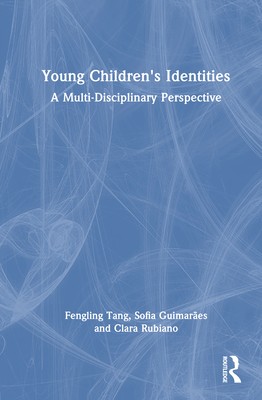
- We will send in 10–14 business days.
- Author: Fengling Tang
- Publisher: Routledge
- ISBN-10: 0367862735
- ISBN-13: 9780367862732
- Format: 15.6 x 23.4 x 1.1 cm, kieti viršeliai
- Language: English
- SAVE -10% with code: EXTRA
Reviews
Description
With the social, economic and political challenges alongside implications of the digital era and environmental sustainability in the 21st century, understanding how children feel about themselves, particularly within the complex web of their relationships with family members, peers, friends, practitioners, and professionals is of ultimate importance.
Young Children's Identities: A Multi-disciplinary Perspective explores and recognises the importance of identity as a key foundation for children's holistic development and wellbeing. Readers are encouraged to consider diverse perspectives, including history, psychology, sociology, education, ethnography, and human ecology when understanding how children construct and co-construct their identities over time.
Supported throughout by Froebelian and Freirean lenses, the authors' own personal, professional and research experiences, this essential volume seeks to develop a richer picture of this complex area of young children's identities by addressing the following questions:
- Whose values are defining me?
- Who am I in a diverse society?
- What is the role of professionals in co-constructing children's identities?
There is a great need to understand children's identities in early childhood due to the undeniable impact this can have upon their wellbeing and holistic development. This is an essential read for students, academics, practitioners and policy-makers working within early years education, childhood development, psychology and social work.
EXTRA 10 % discount with code: EXTRA
The promotion ends in 23d.01:53:07
The discount code is valid when purchasing from 10 €. Discounts do not stack.
- Author: Fengling Tang
- Publisher: Routledge
- ISBN-10: 0367862735
- ISBN-13: 9780367862732
- Format: 15.6 x 23.4 x 1.1 cm, kieti viršeliai
- Language: English English
With the social, economic and political challenges alongside implications of the digital era and environmental sustainability in the 21st century, understanding how children feel about themselves, particularly within the complex web of their relationships with family members, peers, friends, practitioners, and professionals is of ultimate importance.
Young Children's Identities: A Multi-disciplinary Perspective explores and recognises the importance of identity as a key foundation for children's holistic development and wellbeing. Readers are encouraged to consider diverse perspectives, including history, psychology, sociology, education, ethnography, and human ecology when understanding how children construct and co-construct their identities over time.
Supported throughout by Froebelian and Freirean lenses, the authors' own personal, professional and research experiences, this essential volume seeks to develop a richer picture of this complex area of young children's identities by addressing the following questions:
- Whose values are defining me?
- Who am I in a diverse society?
- What is the role of professionals in co-constructing children's identities?
There is a great need to understand children's identities in early childhood due to the undeniable impact this can have upon their wellbeing and holistic development. This is an essential read for students, academics, practitioners and policy-makers working within early years education, childhood development, psychology and social work.


Reviews